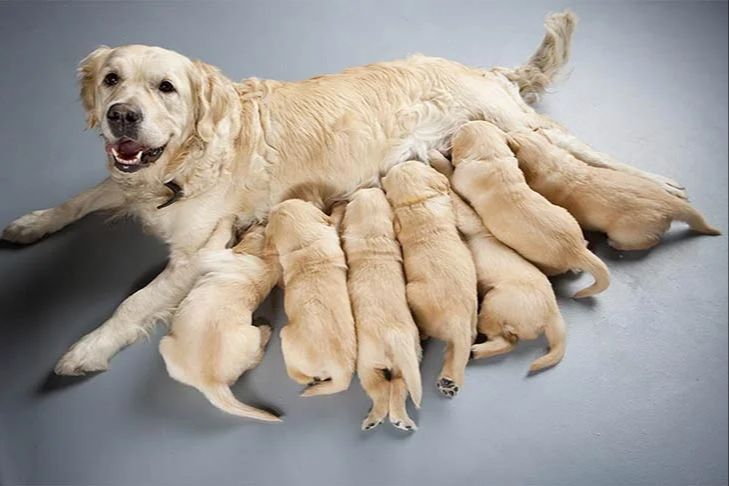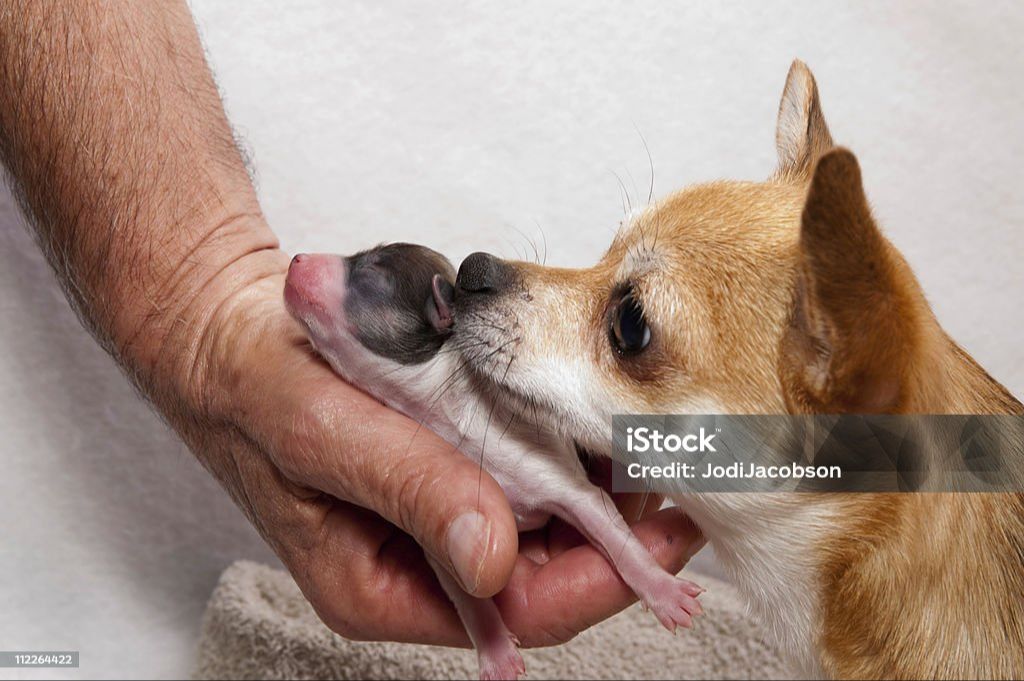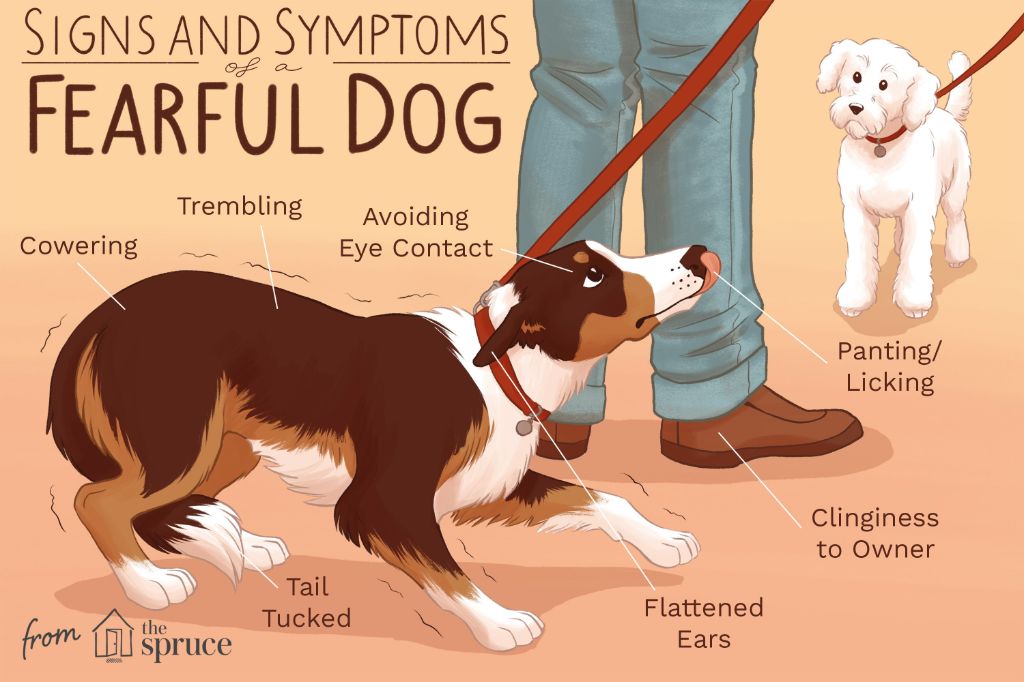Introduction
The question of whether a mother dog has a favorite puppy is an interesting one for dog owners. It explores the nature of the bond between a mother and her offspring, and whether maternal instincts lead to equal treatment of all her puppies. This article provides an overview of the topic by examining if mother dogs play favorites, the possible reasons behind it, and the potential impacts on the puppies.
We will analyze the mother-puppy dynamic by drawing from veterinary research, canine behavior studies, and the hands-on experiences of breeders and pet owners. The goal is to reach a well-supported conclusion on if preferential treatment exists, while also providing tips for owners on managing any favoritism that occurs.
Mother-Puppy Bond
The bond between a mother dog and her puppies begins from the moment they are born. According to research by PetPlace, mother dogs go through stages of bonding with their puppies in the early weeks after birth (Source 1). In the first few weeks, mother dogs focus on caring for and feeding their puppies. They instinctively nurture, clean, and protect their puppies. The mother stimulates the puppies to go to the bathroom by licking them. As the puppies grow older and their senses develop, they start to bond more with their mother through playing and interacting. This helps the puppies build trust and feel secure. According to the Regina Humane Society, by around 8-10 weeks old, puppies have formed a strong attachment to their mother (Source 2). The mother-puppy bond serves an important purpose in the puppies’ early development and socialization.
Equal Treatment
Most mother dogs treat their puppies equally when it comes to feeding, grooming, and caring for them. Canine maternal instincts drive them to nurse, clean, and watch over all of their puppies in the litter. According to veterinarians, mother dogs do not intentionally favor some puppies over others.
A mother dog allows each puppy equal access to her milk supply and feeds them accordingly as they demand it. She will also lick and groom each puppy to stimulate elimination and keep them clean. Puppies that get less grooming or nursing time may be weaker, smaller, or less assertive than their littermates.

However, some experts note that if a mother dog is struggling to produce enough milk or is in poor health herself, she may instinctively prioritize stronger or more dominant puppies. This can lead to some puppies receiving more care and attention. Additionally, a sick or injured puppy may require extra grooming focus from the mother dog.
Overall, mother dogs are driven to distribute maternal care as equally as circumstances allow. Their innate instincts ensure all puppies in a litter receive the feeding, grooming, warmth and protection they need in their first few weeks of life.
Differing Relationships
While a mother dog may not consciously play favorites, her bond with each puppy can vary based on their personalities and behaviors. According to a 2013 study, dogs form memories and relationships that allow them to recognize their puppies later in life (https://fotp.com/learn/dog-lifestyle/do-dogs-forget-their-puppies). However, the strength of those bonds can differ between puppies.
Puppies who are more docile, affectionate, and attached to their mother often form closer connections. Shy or independent puppies may have more distant relationships. The mother will not purposefully neglect a puppy, but her maternal instincts draw her to the pups who seek her care and comfort the most. She is responding to cues from their personality and temperament.
This phenomenon is not favoritism in the human sense, where a parent deliberately chooses one child over another. The mother dog loves all her puppies equally. But just as with human children, her relationship with each pup will be unique based on their individual characteristics and needs.
Maternal Instincts
Mother dogs have strong maternal instincts that prompt them to care for their puppies. These instincts are driven by hormones like oxytocin, prolactin, and estrogen, which rise during pregnancy and remain elevated while nursing (Petreleaf). The mother dog’s instincts ensure that she provides equal care and attention to all of her puppies, not favoring one over the others.
According to the AKC, from the moment they give birth, mother dogs display extremely protective behaviors over their puppies. They will clean, nurse, and watch over all the puppies closely. A mother dog’s instinct to look after her litter will usually persist for several weeks as the puppies grow, until their bond naturally begins to weaken and the puppies gain independence.
While mother dogs may form special bonds with individual puppies over time, their innate drive is to nurture the entire litter equally at first. Their strong maternal instincts override any preference and ensure equal distribution of milk, warmth, grooming, and protection to all their offspring.

Favoritism Indicators
Mother dogs may exhibit some behaviors that indicate favoritism towards certain puppies. These can include:
- Spending more time licking, grooming or playing with specific puppies
- Letting favored puppies nurse more frequently or longer
- Being more protective or defensive of certain puppies
- Carrying around or keeping favored puppies closer to her
- Intervening more quickly if a favored puppy is in distress
- Feeding favored puppies first or allowing them to eat undisturbed
According to veterinarian Dr. Ivana Crnec at Pawleaks, mother dogs may favor female puppies who they recognize as future mothers and leaders of the pack. They may also favor weaker or smaller puppies that seem to need extra care and attention.

Why Favoritism Occurs
There are several reasons a mother dog may bond more closely with certain puppies in her litter:
Sick or weak puppies – Mother dogs often pay special attention to puppies that are ill or failing to thrive. She may isolate them from the litter and stay by their side to provide extra care and monitoring. This is an instinctive effort to protect vulnerable puppies (1).
Bonding during nursing – When a mother dog nurses her puppies, oxytocin is released which promotes bonding. Puppies that nurse more frequently may form a stronger bond with their mother (2).
Scent and temperament – A mother dog recognizes each puppy by its unique scent. She may favor certain puppies that have similar scents and temperaments to her own (3).
First born preference – Some mother dogs show a preference for puppies born first. They spend more time caring for and interacting with the first born puppies. This may be due to forming an initial bond during the start of labor.
In some cases, favoritism may be random or rotate among littermates. The key is observing the mother dog’s behavior to determine if clear preferential treatment is occurring.
(2) Bonding hormones in dogs
(3) https://www.justanswer.com/dog-health/6iiwi-dog-keep-taking-just-one-new-pups-hiding.html
Impact on Puppies
Perceived favoritism from the mother can have an impact on puppies’ development and socialization. Puppies that are consistently rejected or ignored by the mother may suffer impaired social skills and behavior problems later in life. They often become timid, fearful, or even aggressive towards other dogs. These puppies miss out on the natural confidence and socialization boost that comes from a mother’s care and affection [1].
Favored puppies also face challenges. They may not learn natural social cues and “bite inhibition” from litter mates. Excess mothering prevents them from developing independence. As adults, they often struggle with separation anxiety, neurotic behaviors, and poor socialization. Favored puppies may even become aggressive or defensive when protecting resources and their bonded human [2].

Lack of equal socialization and maternal care affects all puppies. Human intervention is often needed to facilitate healthy development. Puppies require balanced discipline, training, and affection from an early age, regardless of the mother’s innate preferences.
Managing Favoritism
If you notice a mother dog favoring one or more puppies, there are some steps you can take to try to manage it:
- Rotate the puppies’ locations frequently so the mother doesn’t get too attached to keeping certain puppies in one spot. Gently move favored puppies away from the mom and less-favored ones closer.
- If there is a runt of the litter, pay special attention to ensuring it is able to nurse. Supplement feed if needed.
- Consider removing favored puppies for brief supervised periods so the other puppies get more attention.
- Discourage the mother dog from isolating certain puppies. If she tries carrying one away, gently take it and bring it back.
- Make sure all puppies are kept warm and well-fed. Check for any signs of health issues.
- Give the mother dog frequent affection and praise for caring for her litter. This can help relieve stress.
- Provide a box or enclosure with higher walls if the mother dog tries to move puppies out of the whelping area.
- Consult an experienced breeder or veterinarian if the mother dog’s behavior seems extreme or any puppies are at risk.
While favoritism is natural, actively working to redirect the mother dog’s attention equally can give all the puppies their best chance to thrive. If efforts don’t work, it may be necessary to hand-raise less-favored puppies.
Conclusion
In summary, while mother dogs may form special bonds with individual puppies, they do not actually have an innate favorite amongst their litter. A mother dog’s maternal instincts drive her to care for all of her puppies equally by nursing, cleaning, and protecting them. She does not demonstrate favoritism in these basic areas of care.
That said, mother dogs may interact differently with specific puppies based on their personalities and temperaments. More submissive or timid puppies may require extra reassurance and attention from their mother, which creates a unique relationship. However, this does not indicate true favoritism. The mother dog is simply responding to the needs of each puppy and fulfilling her maternal duties to the litter.
In the end, mother dogs do not consciously choose a favorite puppy. Their motherly instincts ensure that all puppies receive equal care and attention during the critical nursing and bonding period. While the mother-puppy relationship varies for each puppy, these differences do not amount to actual preferential treatment or favoritism on the mother’s part.